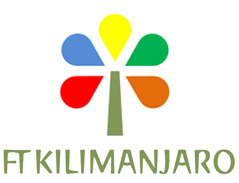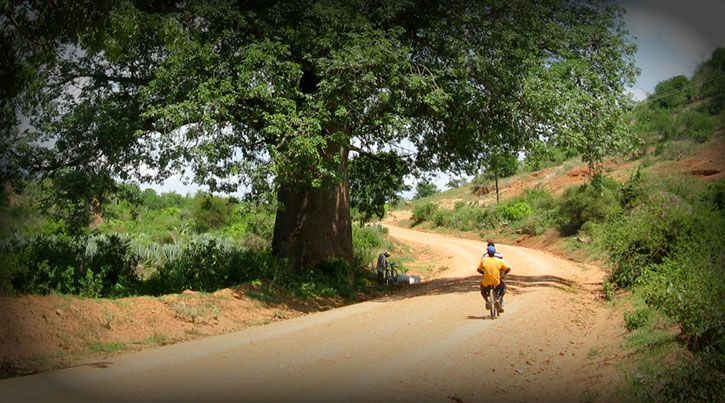Background
FT Kilimanjaro (FTK) is a non-governmental organisation registered in Tanzania (April 2009). FTK is a joint initiative of the Dutch NGO FDK (NL) and TPC Company.
FD Kilimanjaro is a Dutch Foundation strongly liaised to FEMI, a Dutch Development Foundation.
In 2006 Douwe de Vries, as board member of FEMI, visited some projects in the village of Langasani (near Mtakuja) on the TPC-Sugar plantation. During that visit he met the head of the primary school in Mserikia, one of the sub villages in Mtakuja, and was invited to visit his school.
The school was clean, but poorly maintained and lacked almost everything. During that visit, it was noted that none of the students ate anything during in lunchtime. Aiwinia Mlay did a little survey and found that only about 30% of students had breakfast, 0% ate lunch, and most had only received a simple evening meal.
Douwe de Vries discussed with the nearby hospital the composition of a simple but nutritious lunch and the associated costs. It appeared that it was possible to prepare a good meal at the school for only 8 cents per pupil.
Back in the Netherlands, Douwe explained the situation and presented possible solutions to the board of FEMI. The board was strongly convinced that the current local diet is disastrous for growing children, but that something could be done. FEMI decided soon after that to provide the students of this school with a lunch. After half year, the other primary school in Mtakuja and the pre-primary were also included in the school lunch project. Since then, hundreds of thousands of meals are provided.
FEMI was well aware that giving the students a lunch was not a sustainable solution. Therefore a plan was developed to enable the village to take care of the livelihood of its own villagers. A variant of the saying: better to provide fishing net then a fish.
Then another sponsor (DIRA) got interested to join, and it became financially viable. Discussions with the management of TPC sugarcane plantation, by far the largest employer in the area, led to a Memorandum of Understanding between TPC and FEMI. TPC was willing to engage in an exercise for the development of Mtakuja. TPC kept its promise splendidly.
Subsequently there were consultations with the village representatives, with Aiwinia Mlay playing an important role. From that first meeting it was clear that the involvement of FEMI would be limited and that the village should take over the responsibility themselves in due course. It was also said that although FEMI has ideas about the content and approach of the process, the project from them, the village. They are the owners of the problem and the solution, and have key roles in the process. The first years is was noted that it is important to keep repeating this message for local ownership to grow.
For the implementation of the project in Tanzania, the international NGO FD Kilimanjaro was created under Dutch law. “FD” stands for FEMI / DIRA although DIRA is no longer a partner in the project.
The implementation of the projects are done by FT Kilimanjaro overseen by it’s own local board of Directors.

